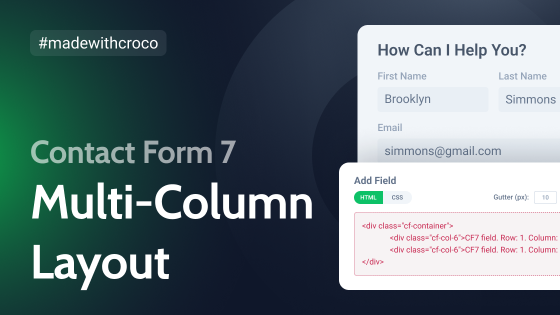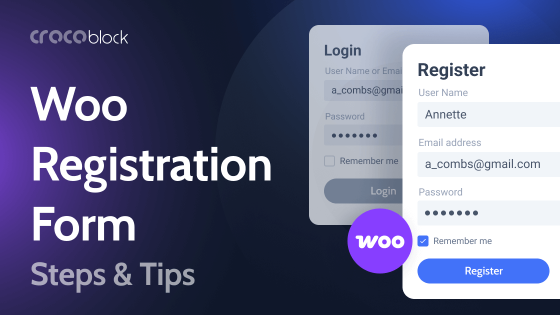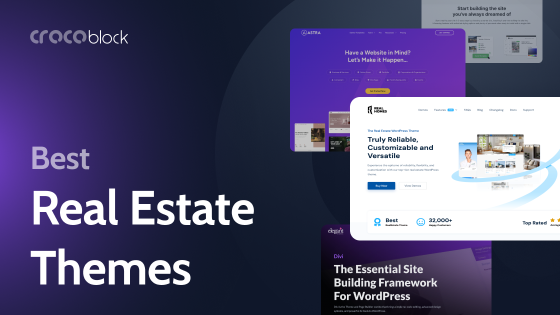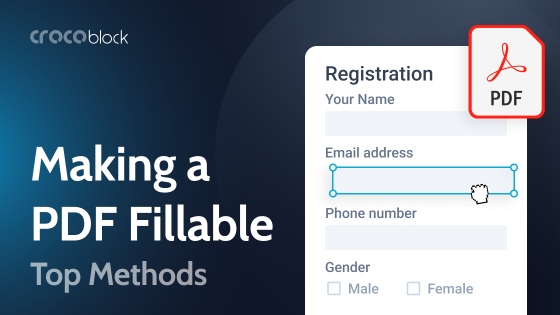Just as a Swiss Army knife offers a range of tools in one compact package, a WordPress booking website emerges as a multifaceted solution tailored to the diverse needs of businesses, from hotels and educational courses to a spectrum of events. Such a site makes the booking process convenient for both clients and site owners, so it is critical to have it.
In this article, we will look at the aspects and elements necessary to create and successfully operate a WordPress booking website. We’ll cover everything you need to know about setting one up, from its basics to different types and practical examples. Plus, we’ll help you pick the best plugins and tools to make sure your site runs smoothly and your clients have a hassle-free experience.
Table of Contents
- What Is a WordPress Booking Website?
- WordPress Booking Website Types
- Benefits of WordPress Booking Website
- WordPress Booking Websites: Top Use Cases
- Key Features a WordPress Booking Website Should Have
- FAQ
- Conclusion
What Is a WordPress Booking Website?
A WordPress booking website is a type of website that allows users to book appointments, hotel rooms, or rentals directly through the website. Such a site will allow you to serve various industries, be it the hotel business, courses, or event organization.
Particular attention should be paid to the key structural elements when creating a WordPress booking site—a booking management system, integration with payment gateways, quick search and filters, and availability calendars. Despite the relatively small number of plugins, many developers may have serious difficulties actually integrating them, and here, WordPress plugins can help.
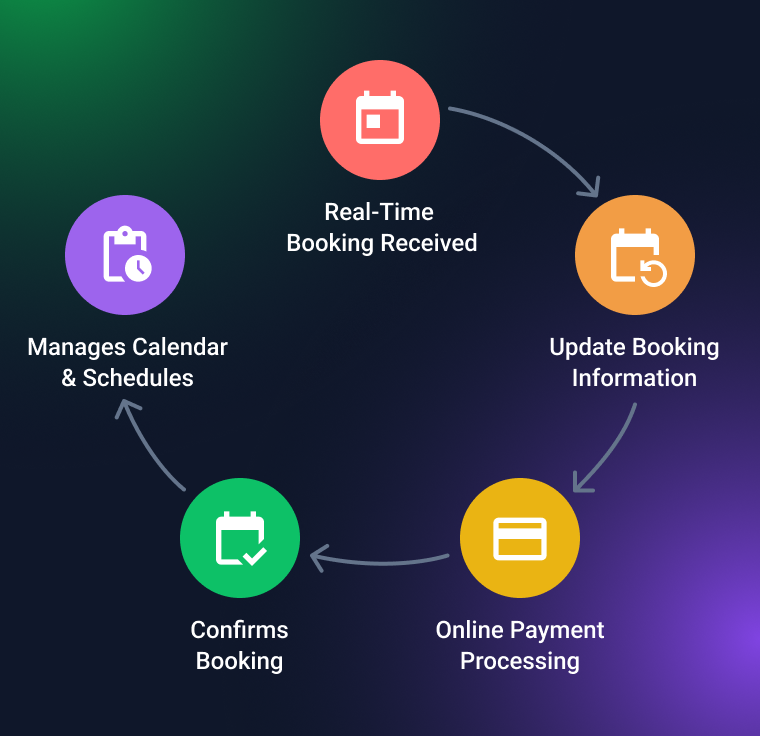
WordPress Booking Website Types
You will not be able to figure it out without understanding what characteristics distinguish WordPress websites, so before moving forward, you must understand that websites differ by these types:
- target audience;
- core focus;
- monetization type;
- communication method.
Below, we will delve into each of these types so that you can easily understand them.
By target audience
To sell anything, the first thing you must understand is who you are selling to. Understanding who will use your site is a critical aspect of creating a product that best meets customer expectations.
For businesses and professionals
These sites are designed for companies that will organize and schedule business meetings using your website. WordPress booking websites provide the technical basis for developing effective meeting scheduling systems built into a company’s workflow, which will radically improve the efficiency of employees.
Examples: Zoom, Calendly, Eventbrite.
For consumers
Designed for a broad audience seeking services in recreation, entertainment, beauty, and health. Every year, the holiday season is upon us, and when people are too tired from work and are trying to recover, the first place they would probably go is a vacation booking site. Therefore, such a site should be able to handle large data requests quickly and smoothly.
Examples: Booking.com, Airbnb, TripAdvisor.
For educational institutions
Websites for registering for courses, training, and educational events. Very often, the number of applicants on such websites can vary from 500 to more, reaching even tens of thousands, which requires the website to function properly. The site requires special settings and high performance to ensure that students do not experience problems when applying for a course or adding themselves to a teacher’s schedule.
Examples: Coursera, Udemy, EdX.
By the core focus
You must understand that the choice of a WordPress booking site’s core focus determines the future product, making interaction with clients even easier. There are only two categories – niche bookings and multi-functional platforms – so let’s look at them closer.
Niche bookings are aimed at meeting specific needs or are dedicated to specific types of events, such as booking a hotel room or renting a car. This approach allows us to create a highly specialized and high-quality product offering unique value to the target audience.
Multi-purpose platforms, on the other hand, aim to offer a wide range of services and bookings, thereby meeting the diverse needs of a wide audience. This approach gives you significant market reach and flexibility in offering new services, which can help increase customer traffic.
By monetization type
A very important factor for determining the type and analyzing the essence of WordPress booking websites can confidently be called monetization. Regardless of the specifics, the principal aim behind every website, including booking ones, is to generate income. Now, we will look at monetization types available for WordPress booking websites.
Booking fees
This method involves charging a commission on every successful booking made through the platform. In this context, the website serves as an intermediary between clients and the service provider.
For instance, certain websites serve as online marketplaces where a variety of hotels can list details about their accommodations, allowing clients to easily discover and compare different options in one convenient location. The hotel owner doesn’t need to create their own website, and the booking website takes its commission.
Services
If a website is created to provide only the owner’s services, then monetization will directly depend on sales, such as a paid consultation. Let’s say you are a specialist who provides business consulting services and has created a special website; your income will directly depend on the number of services sold.
Paid ads
Another avenue for monetization involves paid advertising, and here, I’m not referring to AdSense. For instance, you could develop a website dedicated to car rentals in a specific city and charge a fee for posting rental ads on your site. This kind of website is very easy to automate.
By communication method
When using a WordPress booking website, you should not forget about one of the most important types – communication, because the structure of selling services/monetization almost directly depends on how you communicate with the client.
Direct booking through the website
The first type is perfect for introverted clients because they literally won’t need to communicate with anyone, and all transactions will be carried out automatically. With this type, developers will need to set up the website so the client can figure everything out without additional help and make a payment.
Booking upon inquiry
A booking method in which, before directly purchasing a service, the client first shows interest and “reserves” a position. Typically, this method is suitable for businesses that require clarification of additional data. From the developers’ point of view, it is necessary to create a clear and simple path for the user so that they can not only immediately make a purchase but also show interest by learning additional information.
Through direct communication
This type is very rare, but if the site provides elite services or requires additional information from the client, they will have to contact a support agent and ask for details to place an order.
Chatbots and automated responders
This type is very similar to the previous one, but the difference here is that the bot clarifies the data and answers questions. An automatic response bot can be easily programmed using WordPress plugins.
Benefits of WordPress Booking Website
For both the developer and the website owner, the benefits of WordPress booking website are enormous, and now we will look at them together:
- Increasing revenue through direct bookings: owning a booking website allows you to earn revenue directly from customers without intermediaries.
- Full control over the booking process: having your own booking website gives you full control over the process.
- Increase trust and brand awareness: interacting with customers on your website will help build trust and loyalty.
- Flexibility and scalability: with your own WordPress booking website, it will be easier for you to scale.
- SEO and marketing benefits: you will be able to attract more organic traffic with your own WordPress booking website.
- Analytics and reporting: with analytics and reporting tools, site owners can track key performance indicators to identify areas where their site may be underperforming and where improvements can be made.
Various plugins and integrations make it easy to track key performance indicators such as conversions and bounce rates, allowing for more informed decision-making.
WordPress Booking Websites: Top Use Cases
As you have seen above, WordPress booking websites open up a horizon of opportunities for business owners, but what about developers? Is there a quick way to set up a booking website without much effort? There is, and the answer is dynamic templates. Crocoblock offers 13 options for ready-made templates that include everything you need to quickly launch websites of various specializations, including booking and rental. Below are four of the best examples of WordPress booking websites.
RentGo dynamic template by Crocoblock
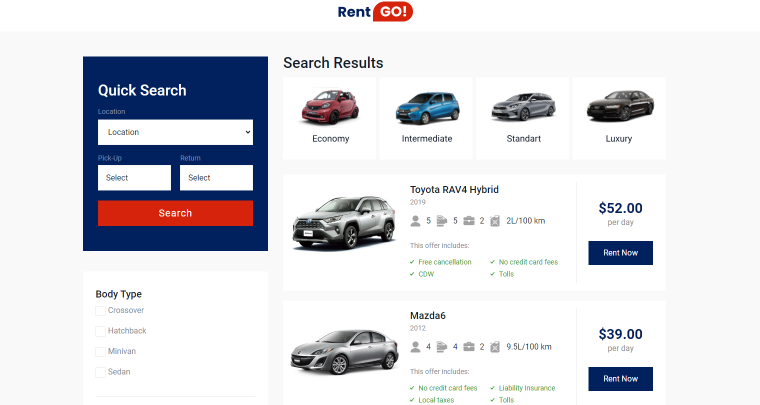
RentGo is an excellent template option for a car rental website; it combines a laconic, customizable design with dynamic content. The template features up to 10 JetPlugins, including JetEngine, JetBooking, and JetSmartFilters. The team behind the template understands how difficult it can be for a developer to create a website that will not only be attractive to customers but also contain all the necessary features for renting a car, which is why they created RentGo. Below are the main features of the template:
- Customize one template for all posts. You can create one template that will subsequently be used constantly. This way, you can show only those characteristics that you want.
- Custom fields. You can create additional fields for characteristics that will later be used for filtering.
- Taxonomy plays a key role in organizing the content on your site, allowing you to group posts according to certain criteria, such as categories or tags, making it easier to navigate your website.
- Listing Grids are a powerful tool for visualizing posts, products, or services in a convenient and attractive way. You can customize product grids, which will improve the customer’s perception of the site.
Travengo – Crocoblock dynamic template
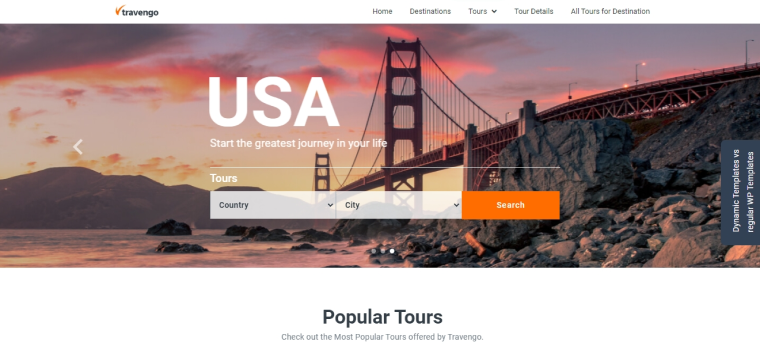
Travengo is an innovative, dynamic template for a tour booking site. It creates a favorable booking experience for the client, removing all unnecessary obstacles in their way and, at the same time, saves the developer time for the actual development since all dynamic connections and the design are already configured. Below are Travengo’s main features:
- Separate catalogs for each post type. You will be able to make the search easier for your client since now, each custom post type will have a catalog page for its posts (for example, countries, tours, etc.).
- Advanced filters. The client will be able to easily navigate your site using filters (price, location, duration, etc.), and if this is not enough for you, you can add custom filtering parameters.
- Customization. Everything about the template is customizable – data in the meta fields, post layouts, page design, booking settings, and more.
Crocoblock Foreo dynamic template
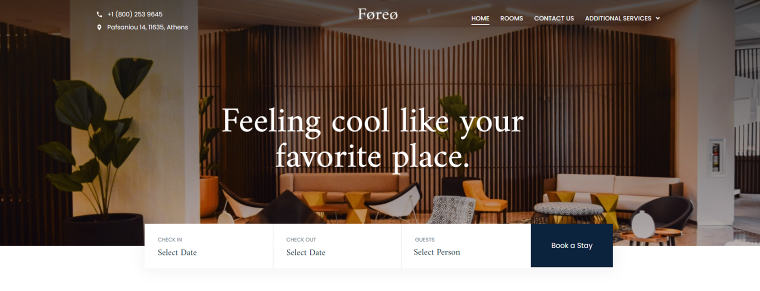
Foreo is a booking website template designed for hotels and the broader service industry. The template offers pre-configured booking forms, and the WooCommerce integration allows you to manage all payments effortlessly. The template is seamlessly integrated with JetBooking, JetEngine, JetThemeCore, JetPopup, JetBlocks, and other JetPlugins, thanks to which Foreo received a number of advantages:
- Improved SEO optimization. The template is optimized for better SEO visibility, which makes it rank higher in search results and attract potential clients.
- Filtering tool. Your client will be able to easily search by categories, dates, and other parameters. The built-in AJAX filter simplifies the search process for the client significantly.
- Flexibility in booking management. The booking process for guests is intuitive and easy to customize.
Overall, Foreo is an ideal WordPress booking website for hotel and hospitality businesses.
Bristol dynamic template by Crocoblock
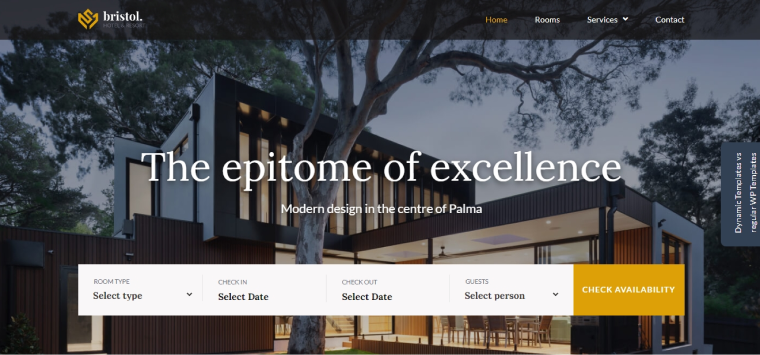
Bristol is a template for websites specializing in hotel bookings. Using a technology base like Foreo, this template offers a solution for private landlords to publish advertisements. Bristol is more suitable for large hotels as it is better configured to work with a large amount of data.
Among the features of the template are a high degree of customization, advanced search filters, and integration with plugins such as JetEngine, JetBooking, JetSmartFilters, and JetThemeCore.
Key Features a WordPress Booking Website Should Have
When creating a WordPress booking website, you must understand what features it should have before launching. This is extremely important for proper interaction with clients and the smooth operation of the website.
Single booking pages and catalogs
To correctly display booking information, it is necessary to properly structure the content using custom post types and meta fields. This allows you to create attractive separate single pages for various booking items, such as hotel rooms, apartments, private houses, etc. The plugin should also let you create archive pages, showcasing all available booking items in the same place. Thanks to it, it will be easier for the client to navigate the site.
Simplified booking process
The most important thing you need to pay attention to before creating a website is a simplified booking process; the client should not have any problems using the booking service. A powerful and easy-to-use booking plugin should allow users to select dates via the availability calendar, provide a convenient booking form with calculations, create a dynamic connection between form submissions and booked slots, have third-party calendars integrated, and dynamically recalculate the cost of bookings (based on advanced pricing rates).
Flexible booking management system
The website should offer a user-friendly interface for managing bookings for customers, administrators, and service providers. It is important for service providers to obtain all the necessary information for the rational management of their accommodations, and the client, for his/her part, can cancel the reservation at any time.
Integrated payment methods
The more payment methods you have, the easier it will be for your client to pay for a booking. Integrations with popular payment systems such as PayPal, Stripe, Apple Pay, Google Pay, Visa, MasterCard, and others are very important.
Advanced search and filtering tools
To make it convenient for the client to select a suitable booking option, it is necessary to create a quick search bar to look for options by basic parameters first (check-in and check-out dates, number of guests, and type of accommodation). JetSearch is the best option for this. If you wish to extend the search routine, you can employ JetSmartFilters and build all sorts of filtering structures, including price range, rating, amenities, distance to important objects, meals, etc.
Multilingual support and currencies
To attract and serve international customers, the site must support multiple languages and currencies, allowing users to choose the options that are most convenient for them.
Reviews, comments, and ratings
We must also not forget about reviews, as, let’s be honest, the second thing we pay attention to when renting a hotel is the reviews. It is very important that under the description of each booking item, there are reviews from visitors, and even better, to encourage them to leave reviews. A great example of a high-quality plugin for reviews is JetReviews, which allows you to add a dynamic reviews and comments section to the site and set up a custom rating system.
FAQ
WordPress offers flexibility, scalability, and ease of use, making it the ideal platform for creating booking websites. For example, thanks to the Crocoblock plugins, you can easily customize your WordPress site to suit your needs.
The main advantages include ease of content management and the ability to customize it to suit any need, thanks to a wide range of plugins. In addition, the low costs of developing and maintaining the site should be noted.
When choosing a booking plugin, consider the following factors: functionality compliance with your business’s specifics, an intuitive and user-friendly interface, and compatibility with other WordPress plugins.
Conclusion
So, we have come to the end of the article. As you already understand – when creating your own WordPress booking website, a horizon of opportunities opens up in different business areas, be it organizing events or renting rooms. To build a top-notch booking website, it’s essential to have a toolkit that is both powerful and user-friendly, an in-depth understanding of the site’s structure and the dynamic relationships between its components, and familiarity with the essential elements outlined in this article.
